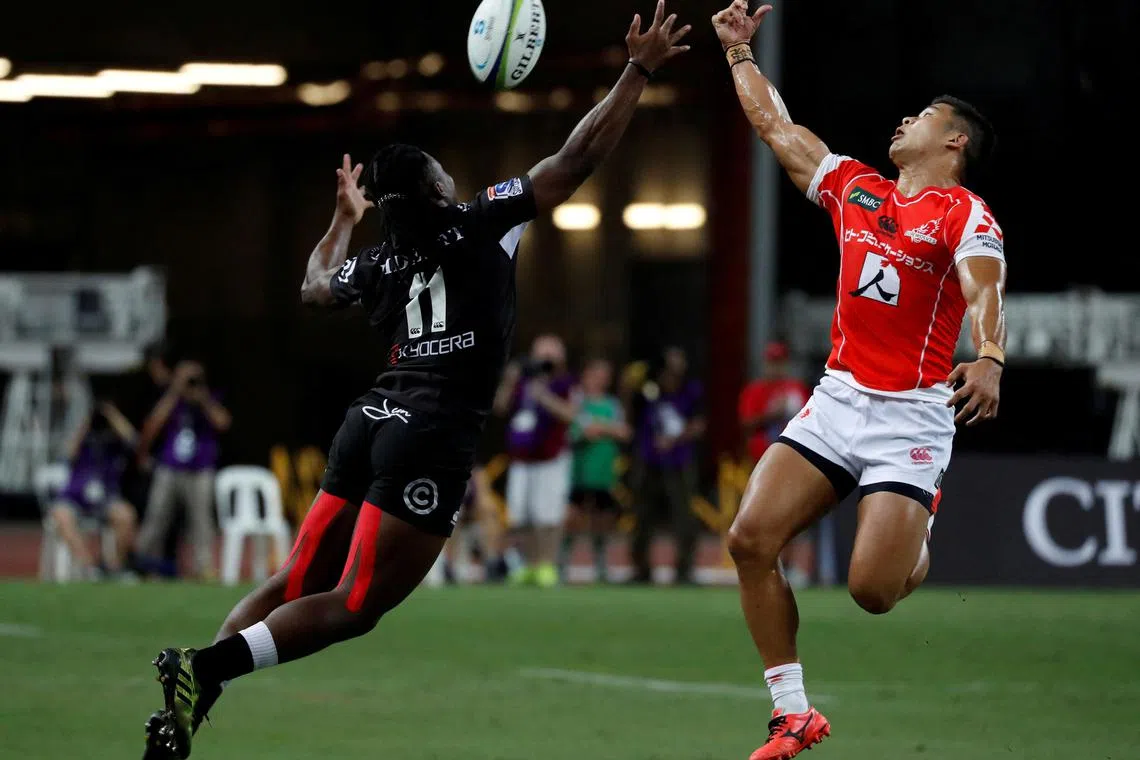Super Rugby to introduce shot clocks, reduce TMO intervention
Sign up now: Get the biggest sports news in your inbox

A Super Rugby match between the Sunwolves and the Sharks at the National Stadium in Singapore in 2017.
PHOTO: REUTERS
MELBOURNE – Super Rugby will introduce shot clocks for conversions and penalties, and aim to reduce television match official (TMO) interventions this season as part of new laws to speed up the game, organisers said on Tuesday.
Referees will enforce a 90-second time limit on conversions, 60sec for penalty kicks, 30sec for scrums and line-outs and five seconds for the ball to be used at rucks, governing body Sanzaar said in a statement.
“We want Super Rugby Pacific to be the most entertaining, innovative and fastest professional rugby competition in the world,” tournament director Matt Barlow said.
“We’ve listened to our fans and taken steps to reduce stoppages and video replays, increase flow and maintain the integrity of the competition and the safety of players in regard to yellow and red cards.
“Players, coaches and referees are excited about these innovations, and we believe they will create a better fan experience, both at the game and for those watching on television.”
Fans have long griped about constant stoppages in rugby, while players often take advantage of referees’ lenience by dragging their feet for set pieces to chew up time when in a winning position late in games.
The most recent bugbear for fans has been heavy-handed interventions by the TMO, the off-field official charged with verifying tries and catching foul play that on-field referees miss.
It is not uncommon for play to grind to a halt six times in a match as a TMO and referee spend minutes poring over video replays before a decision.
Sanzaar said TMOs would now interrupt play only to investigate “serious, clear and obvious incidents of dangerous play” missed by on-field officials.
Organisers have also tweaked the process of assessing yellow and red cards for foul play after near-constant controversy in recent seasons over inconsistent calls.
While on-field referees will still be able to consult with TMOs for yellow card decisions, there will no longer be lengthy video reviews holding up play to decide on red cards. The TMO will now have eight minutes to decide whether a yellow-carded player warrants a red card once the player is off the ground.
This will allow the TMO to make better judgment about the seriousness of foul play without the pressure of having to watch replays under stressful time constraints, Sanzaar said.
“We know players and fans don’t want to watch multiple frame-by-frame replays while they wait for the match to resume, so we believe we’ve struck the right balance,” said Barlow, who also added that player welfare would not be jeopardised by the law innovations. REUTERS


